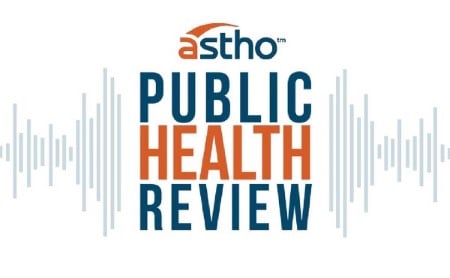A key part of ASTHO’s work is supporting state and territorial health agencies to improve the health and well-being of families, women of reproductive age, infants, children, and adolescents—including those with special healthcare needs. ASTHO increases public health capacity to develop and implement policies and programs in support of maternal and child health.
Featured

Medication-Assisted Treatment in Pregnancy
Pregnant and postpartum women with opioid use disorder continue to struggle with accessing services that would make recovery possible. Read examples of state legislation passed to address recovery program implementation, treatment funding and insurance coverage, and provider education.
Read the Brief
COVID-19 and the Fourth Trimester
ASTHO’s podcast on COVID-19’s impact on overdose-related deaths during the postpartum period, also known as the fourth trimester.
Listen to the Podcast
Dedicating Field Staff to Address SUD during COVID-19
COVID-19 has diverted attention, funds, and personnel usually focused on the opioid crisis. State and local public health departments are experiencing an all-time low in staffing, especially among Maternal and Child Health programs.
Read the Blog PostProject Spotlight
 Pregnancy Risk Assessment Monitoring System (PRAMS)
Pregnancy Risk Assessment Monitoring System (PRAMS)
Since 1987, PRAMS has collected data on maternal attitudes and experiences before, during, and shortly after pregnancy. The findings helps researchers investigate emerging issues and identify ways to reduce health problems for birthing people and their babies.
Latest Family Health Resources

Partner Spotlight: Q&A with Anne Remick, Program Director, Alaska Breast and Cervical Screening Assistance Program
Learn More
Summary of FY24 Labor, Health and Human Services, Education, and Related Agencies Appropriations Bill
Learn More


Polysubstance Use During Pregnancy and the Benefits of Universal Verbal Screening
Learn More
Policies Supporting Young Families Can Reduce Adverse Childhood Experiences
Learn More

Improving Access to Risk-Appropriate Care Through a Partnership Between Obstetrics and Gynecology and Pediatrics
Learn MoreCollaborations
Learning Communities:
ASTHO and APHSA’s Transformative Leaders for Thriving Families Project:
ASTHO and the American Public Human Services Association (APHSA), with support from Casey Family Programs, are partnering to bring together leaders from public health and child welfare sectors to jointly create new approaches to drive progress, help families thrive, and use prevention-focused public health approaches to reduce the number of adverse childhood experiences families experience. To learn more about this project, view our first two publications in this series: A background document and a summary of opportunities to fund programs that support child well-being.
- The Breastfeeding State Learning Community supports jurisdictions in improving breastfeeding disparity rates and promoting health equity through state and local collaboration.
- The Contraception Access Learning Community supports states and territories as they navigate policy and funding issues in access to contraception services including expanding telehealth, service equity and addressing bias in discrimination in care delivery, and supporting the state and territorial workforce.
- The Linking PRAMS and Clinical Outcomes Data Multi-Jurisdiction Learning Community supports states, territories, and jurisdictions as they build capacity to conduct data linkage activities between PRAMS and other maternal and child clinical outcomes data sets.
- Through the Opioid Use, Maternal Outcomes, and Neonatal Abstinence Syndrome Initiative (OMNI) Learning Community ASTHO disseminated strategies and best practices supporting policy implementation related to opioid use disorder (OUD) among pregnant and postpartum women and infants diagnosed with neonatal abstinence syndrome (NAS).
- The Using Data to Address Racial Inequities in MCH Learning Community builds epidemiologic workforce capacity and informs data strategies for promoting racial equity in maternal and child health across the lifespan.
- Funded by HRSA’s Maternal and Child Health Bureau, the Promoting Innovation in State and Territorial MCH Policymaking (PRISM) Learning Community is a five-year partnership between ASTHO and the Association of Maternal & Child Health Programs (AMCHP). Participating jurisdictions focus on strengthening and modifying existing policies and strategies related to mental health and substance use more broadly, including but not limited to alcohol, tobacco, marijuana, and opioid use.